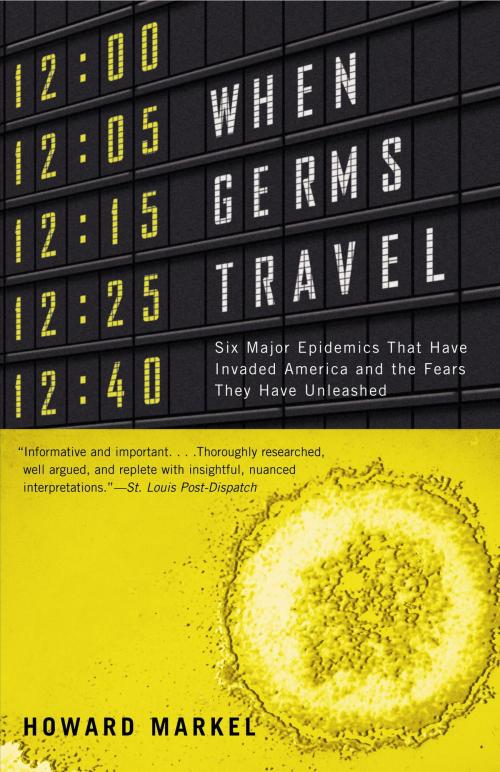When Germs Travel
Six Major Epidemics That Have Invaded America and the Fears They Have Unleashed
Nonfiction, Health & Well Being, Medical, Ailments & Diseases, Infectious Diseases, General, Social & Cultural Studies, Social Science, Cultural Studies, Emigration & Immigration, History, Americas, United States, 20th Century| Author: | Howard Markel | ISBN: | 9780307493071 |
| Publisher: | Knopf Doubleday Publishing Group | Publication: | January 21, 2009 |
| Imprint: | Vintage | Language: | English |
| Author: | Howard Markel |
| ISBN: | 9780307493071 |
| Publisher: | Knopf Doubleday Publishing Group |
| Publication: | January 21, 2009 |
| Imprint: | Vintage |
| Language: | English |
The struggle against deadly microbes is endless. Diseases that have plagued human beings since ancient times still exist, new maladies like SARS make their way into the headlines, we are faced with vaccine shortages, and the threat of germ warfare has reemerged as a worldwide threat.
In this riveting account, medical historian Howard Markel takes an eye-opening look at the fragility of the American public health system. He tells the distinctive stories of six epidemics–tuberculosis, bubonic plague, trachoma, typhus, cholera, and AIDS–to show how how our chief defense against diseases from other countries has been to attempt to deny entry to carriers. He explains why this approach never worked, and makes clear that it is useless in today’s world of bustling international travel and porous borders.
Illuminating our foolhardy attempts at isolation and showing that globalization renders us all potential inhabitants of the so-called Hot Zone, Markel makes a compelling case for a globally funded public health program that could stop the spread of epidemics and safeguard the health of everyone on the planet.
The struggle against deadly microbes is endless. Diseases that have plagued human beings since ancient times still exist, new maladies like SARS make their way into the headlines, we are faced with vaccine shortages, and the threat of germ warfare has reemerged as a worldwide threat.
In this riveting account, medical historian Howard Markel takes an eye-opening look at the fragility of the American public health system. He tells the distinctive stories of six epidemics–tuberculosis, bubonic plague, trachoma, typhus, cholera, and AIDS–to show how how our chief defense against diseases from other countries has been to attempt to deny entry to carriers. He explains why this approach never worked, and makes clear that it is useless in today’s world of bustling international travel and porous borders.
Illuminating our foolhardy attempts at isolation and showing that globalization renders us all potential inhabitants of the so-called Hot Zone, Markel makes a compelling case for a globally funded public health program that could stop the spread of epidemics and safeguard the health of everyone on the planet.















